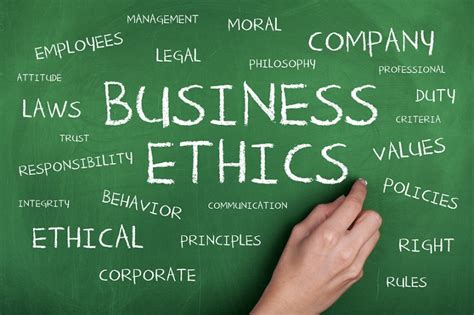The recent flap involving Boeing and allegations of retaliatory actions against engineers symbolizes a broader conversation about the role of ethics in business operations. Corporations, by their very nature, are complex entities driven by the bottom line—profit. However, this fundamental drive often leads to actions that, while legally permissible, straddle the murky line of morality. The intricacies of corporate governance and the diffusion of responsibility within large organizations contribute to an environment where unethical decisions can be rationalized as ‘business needs.’
A critical point raised in public discourse is the inherent amoral nature of corporations. This isn’t merely a philosophical stance but a practical reality that stems from the corporate entity’s primary obligation to maximize shareholder value. This focus often results in decisions that prioritize financial health over societal well-being or ethical considerations. Yet, it’s crucial to understand that while corporations themselves may be amoral, the people within them aren’t necessarily devoid of moral judgment. This nuance is essential in any discussion about improving corporate behavior.
The notion that ‘corporations are people’ is legally upheld but often eschewed in ethical debates. The human beings making decisions behind corporate facades have the potential for both ethical and unethical actions. It is these individuals’ decisions that ultimately shape the corporation’s ethical horizon. The discussion should not merely be about corporations but about the accountability of the individuals within these entities who steer them towards or away from ethical conduct.
Indeed, history is littered with examples of companies adding societal value while still flourishing financially. Contrary to the belief that corporate amorality is a necessity for success, several businesses show that ethical operations can also lead to profitability. This realization might not be universal yet, but growing awareness and consumer demand for ethical business practices are slowly reshaping the corporate world. Insights from behavioral economics also suggest that in the long term, businesses might suffer if their actions widely conflict with societal norms and ethical expectations.
Another layer to this debate is the scale of operations. Smaller, family-owned businesses often maintain a closer alignment with personal and communal values, suggesting that scale and shareholder pressures significantly influence corporate ethics. Larger corporations face an inherent challenge: the broader the shareholder base, the more diluted personal accountability becomes. This diffusion can lead to a scenario where ethically ambiguous or downright detrimental decisions are more likely to occur, shielded by the complex hierarchy and the faceless nature of ‘corporate policy.’
The case of Boeing and its strategic maneuvers, including alleged punitive measures against engineers linked with FAA oversight, brings into sharp focus the need for robust regulatory frameworks. It highlights the danger of cozy relationships between regulators and industry players, which can erode public trust and ultimately harm the business environment. It is not just about preventing unethical practices but also about protecting the interests of employees, consumers, and society at large from the repercussions of unbridled corporate power.
In conclusion, while corporations as entities operate within scopes defined by profit motives, the overarching need for an ethical grounding in business cannot be understated. Society must demand greater transparency and accountability from these entities, pushing for an environment where profitability does not come at the expense of ethical conduct. Regulatory frameworks must evolve to not only catch up with but ideally stay ahead of corporate maneuvers, ensuring that the giants of industry remember their responsibilities not just to shareholders but to the broader world they operate within.


Leave a Reply